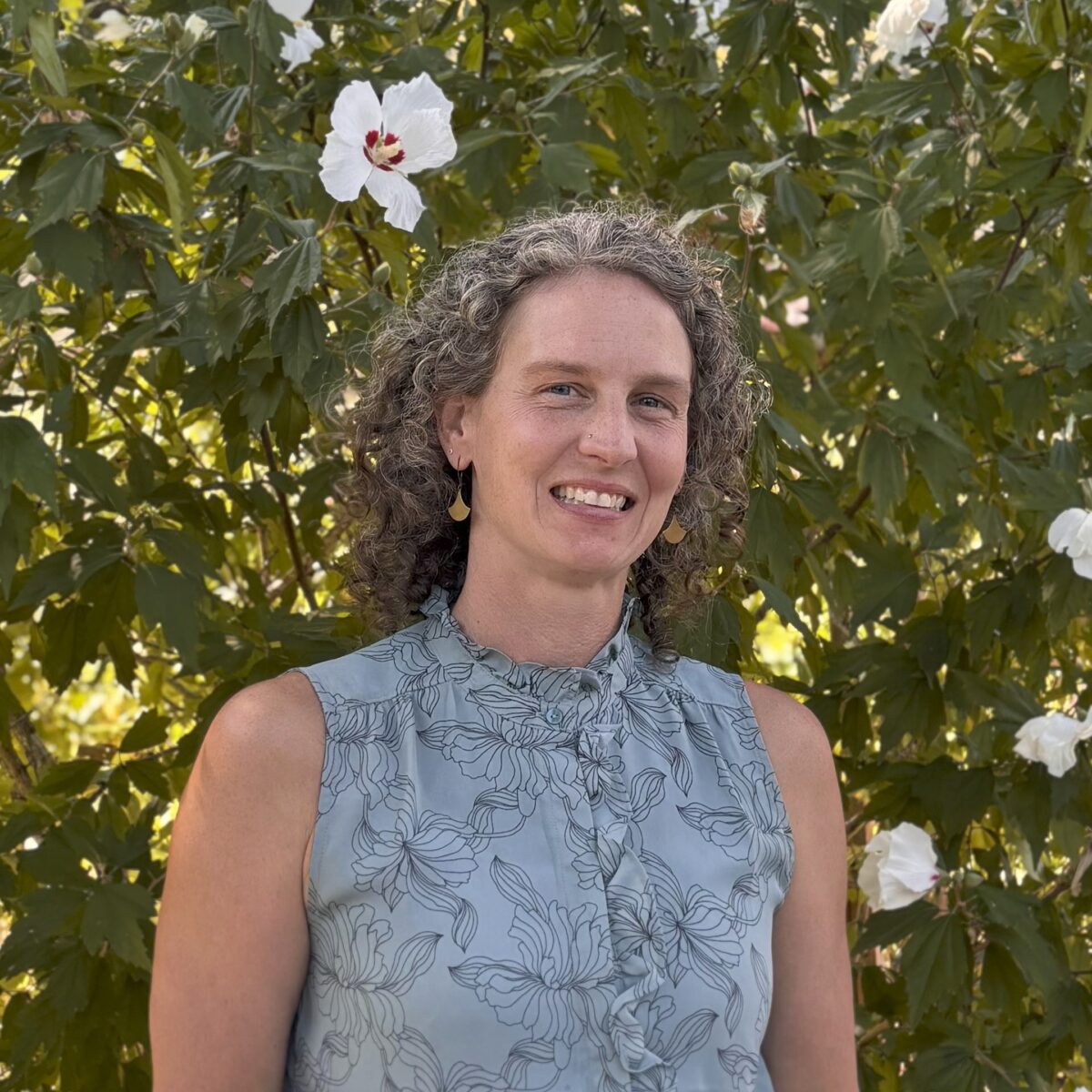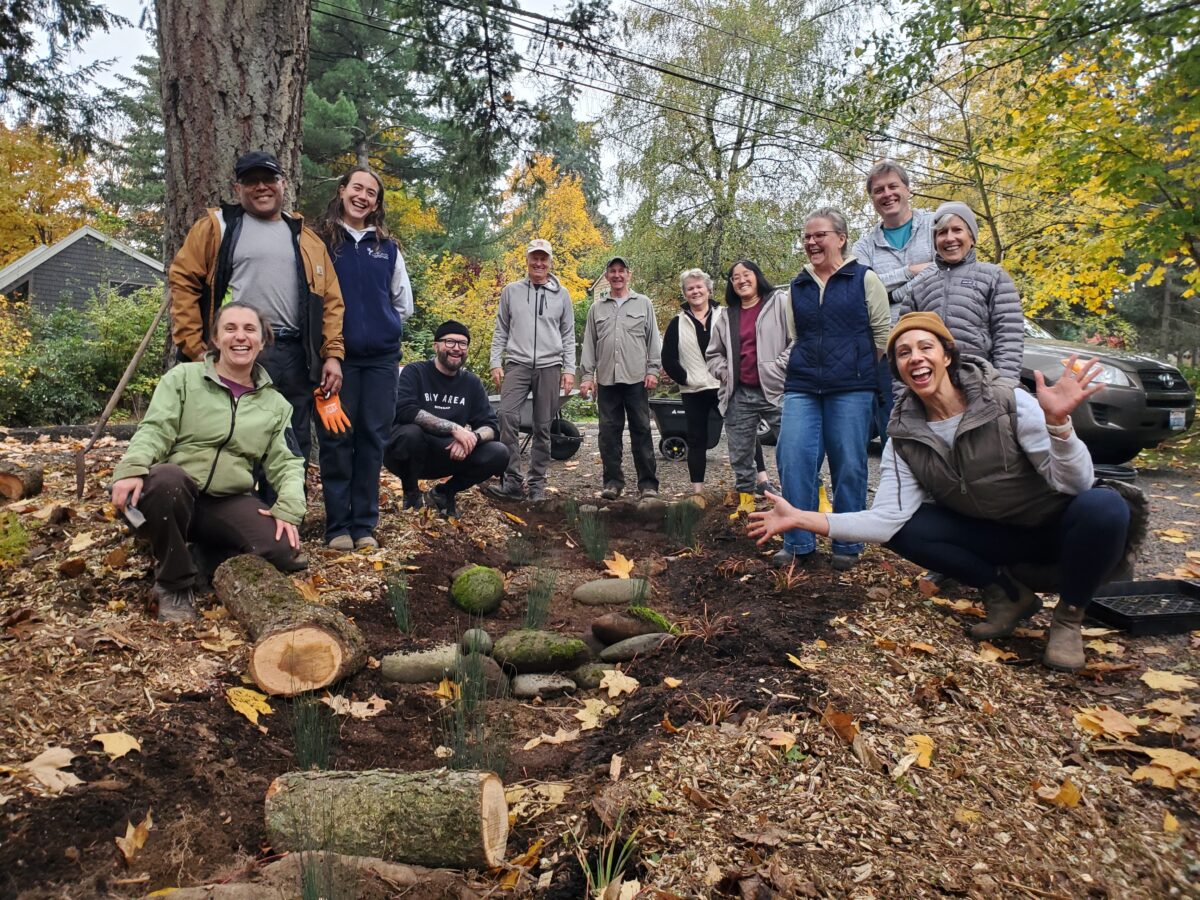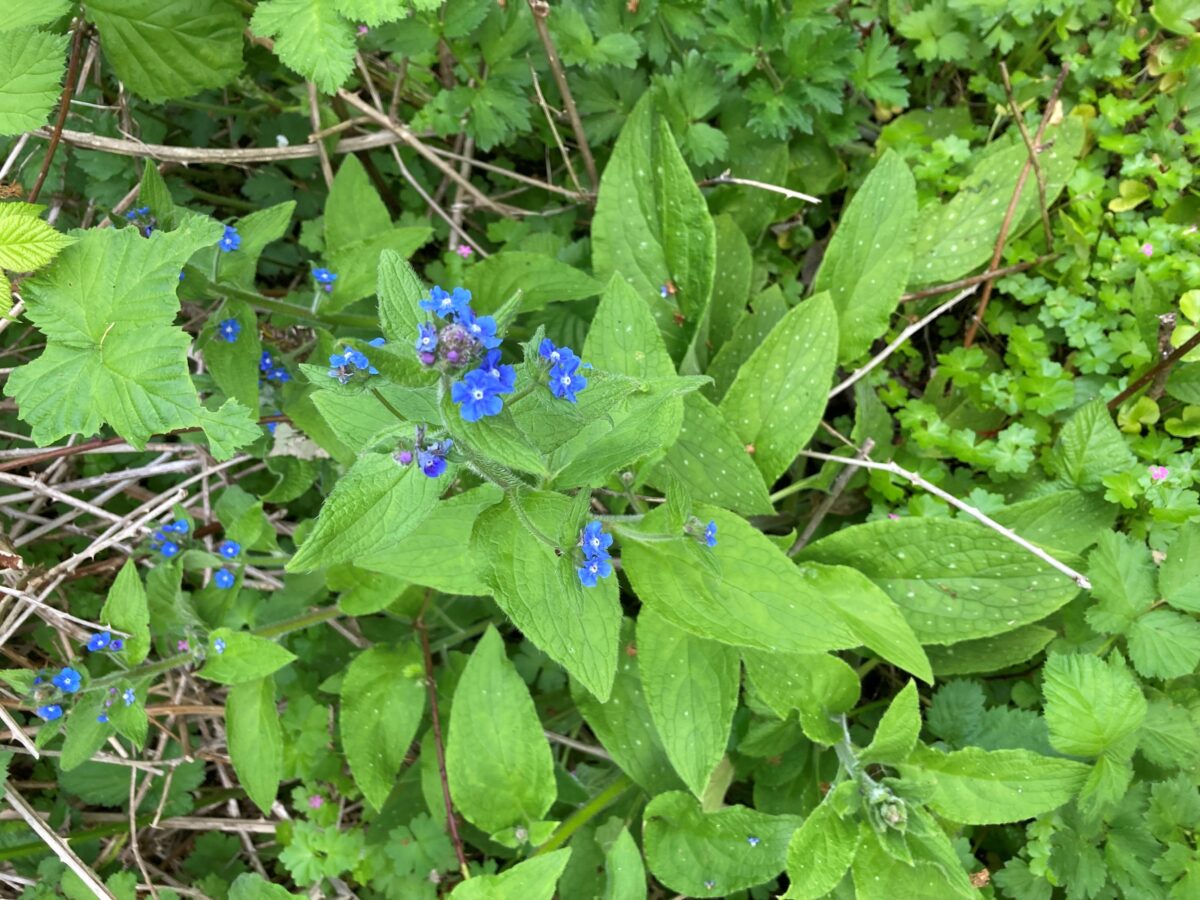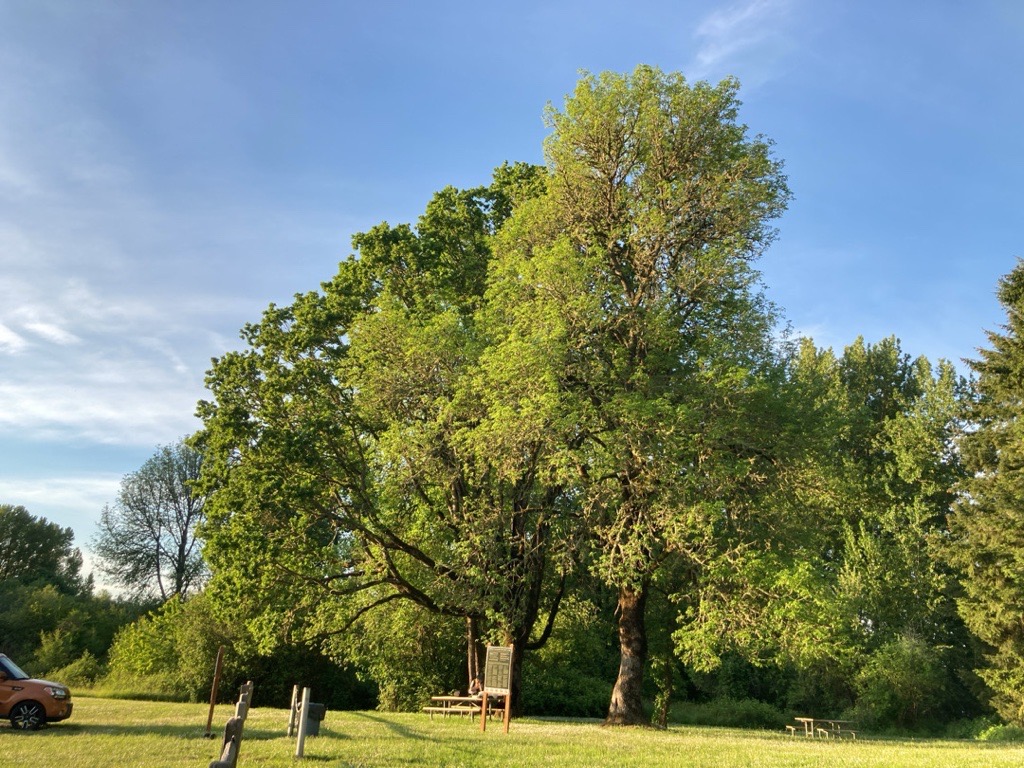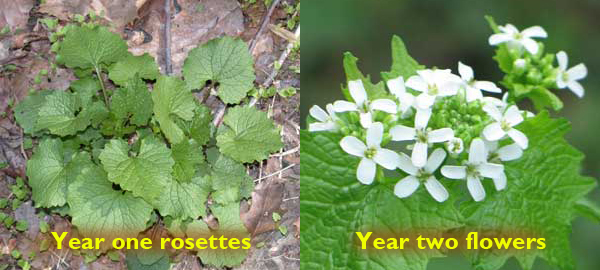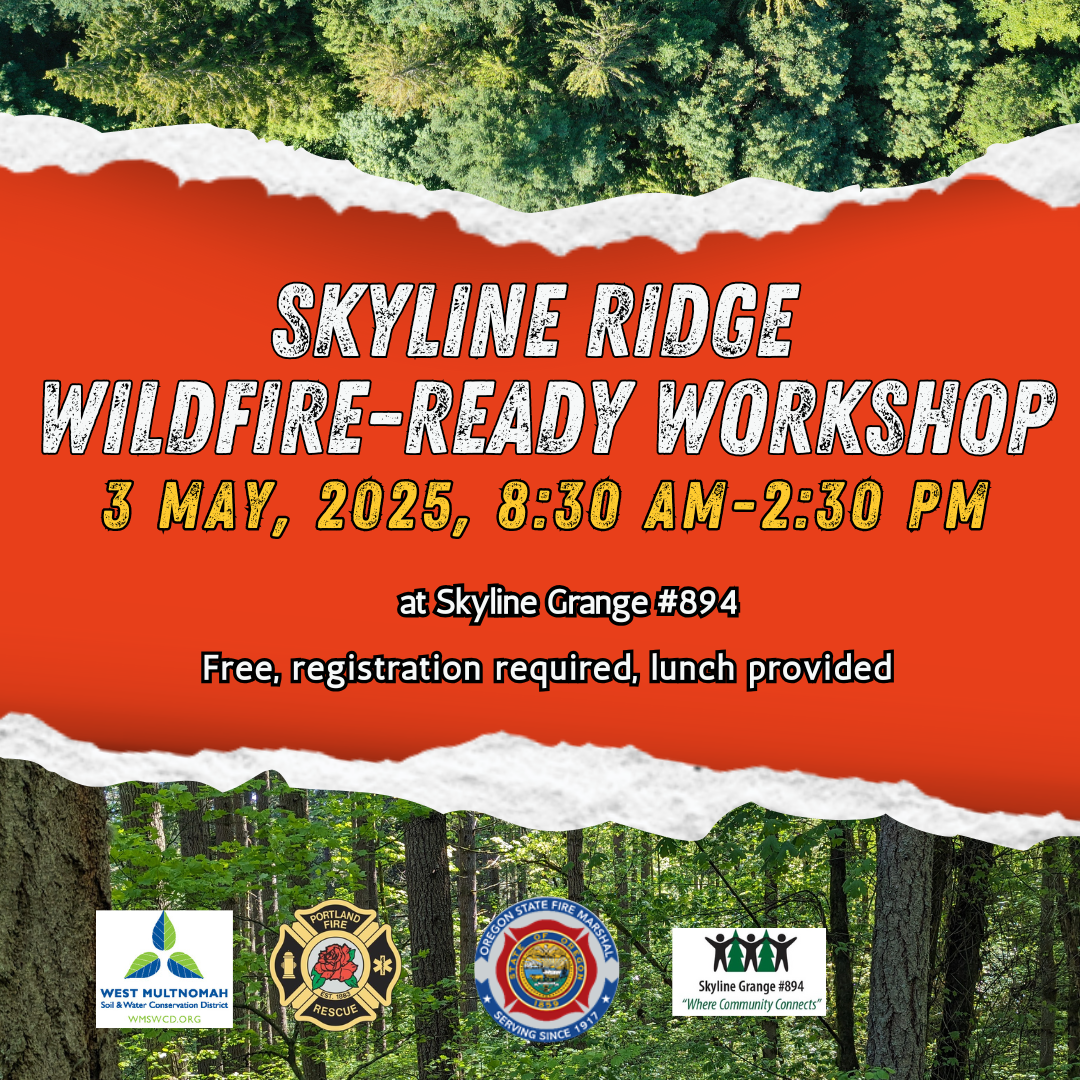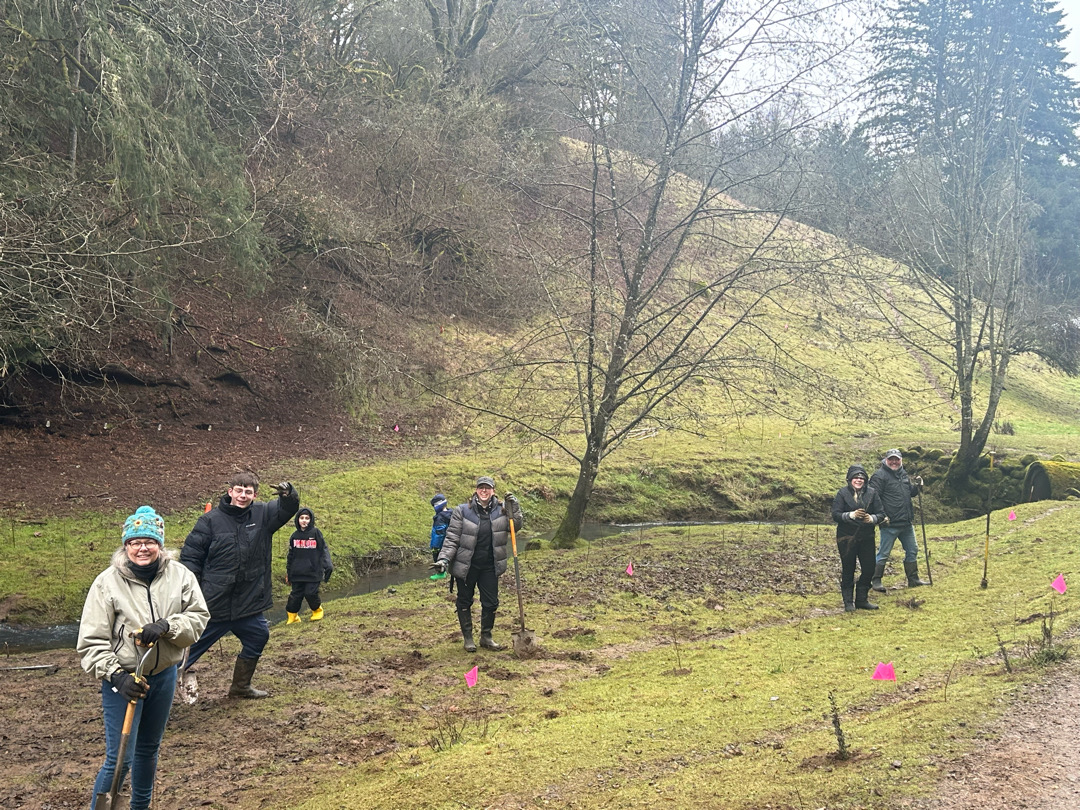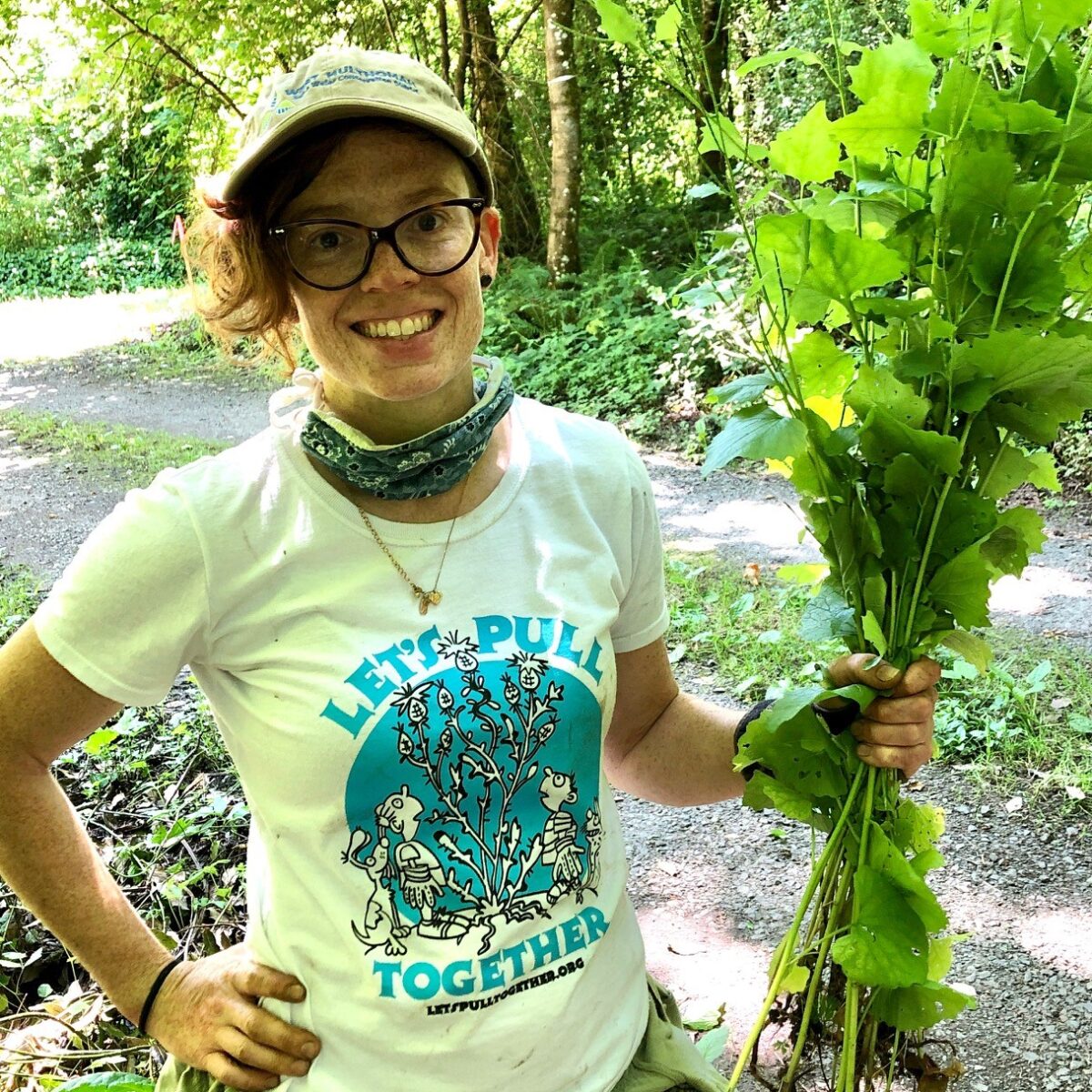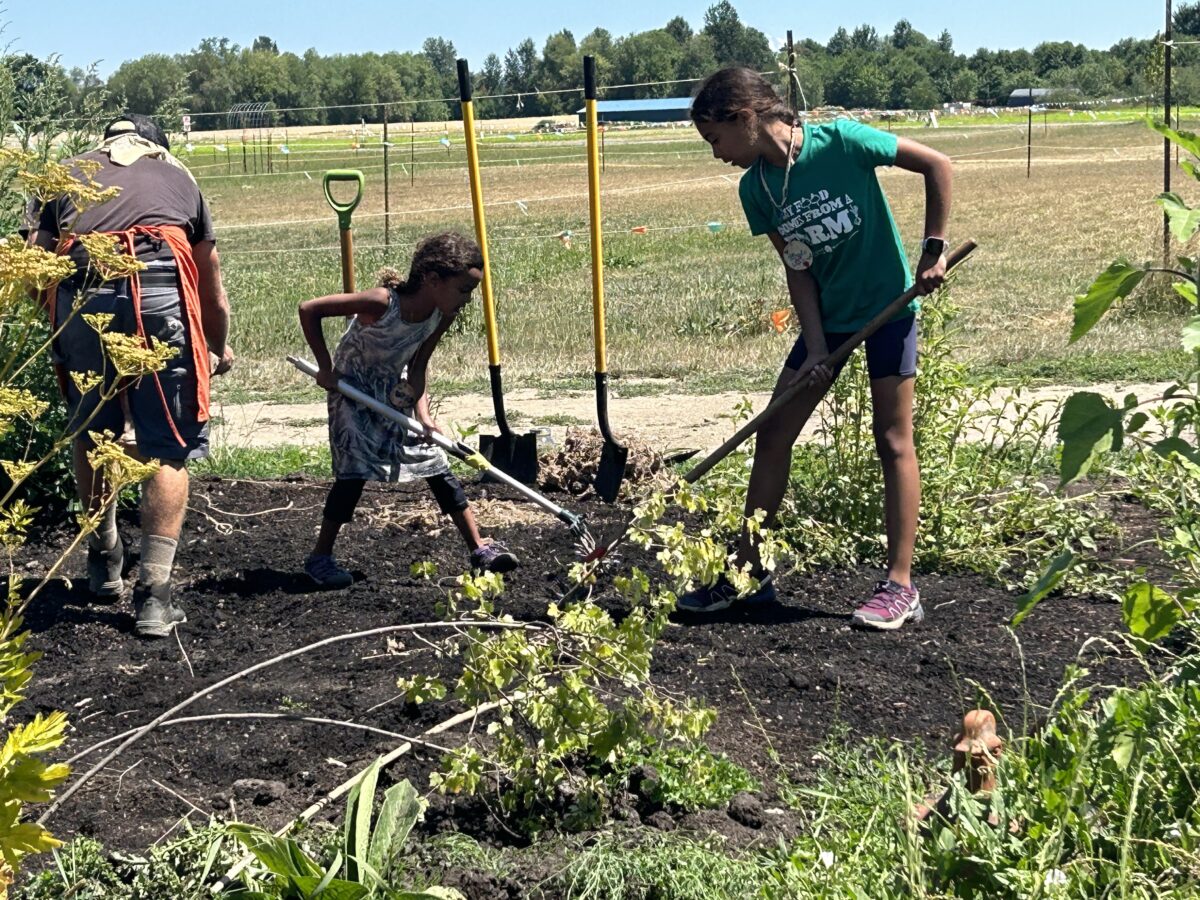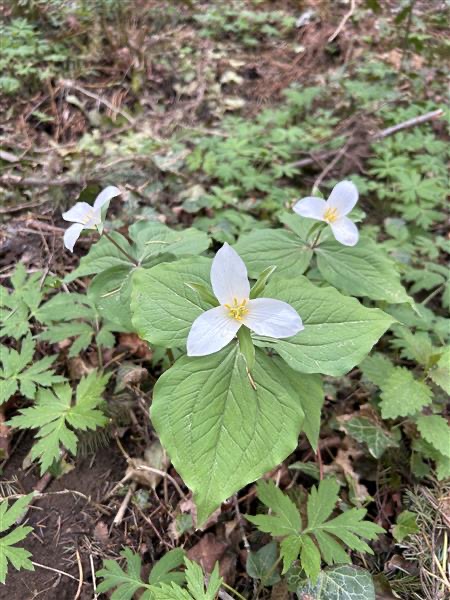Posts by WMSWCD Admin
Behind the Scenes as West Multnomah SWCD Interns
Hi there, we’re James Tracy and Pavlina Slezak, seasonal interns at West Multnomah Soil and Water Conservation District. We’re writing this in August, midway through our season as interns. We have been enjoying dynamic schedules based on seasonal priorities, our personal interests, and current staff members projects. It has been exciting to experience firsthand how…
Read MoreWelcome to our new District Manager, Casey Jogerst
We are very pleased to share that Casey Jogerst has joined us as our new District Manager. Casey brings over 20 years of experience in environmental sciences with a focus on forestry. She holds a B.S. in Science from the University of Iowa and a M.S. in Forestry from Michigan Technological University, which she completed…
Read MoreWelcome Stormwater Stars & Rachel
We have good news; Stormwater Stars is here! Stormwater Stars is a program that was formerly run out of the Westside Resource Center. The District supported the program with grants, as did other community partners. Now, it’s moving house to become a program of West Multnomah SWCD. The core of the program hasn’t changed. It…
Read MoreSummer 2025 E-Newsletter: New workshops on tree health + more events!
Spring is in full swing here in Portland, and it’s the perfect time to reconnect with the land and community. As the days grow longer and flowers bloom, we’re excited to share opportunities to get involved in local conservation efforts—whether through upcoming events, new job openings, or stories on our blog. From ways you can…
Read MoreSign Up for Ash and Oak Folk Workshop Series!
This summer, we’re looking for Ash and Oak Folk, a new type of community scientist, to learn to identify threatened oak and ash trees and make reports of healthy and sick ones to the proper scientific sources. If you’d love a mix of scavenger hunt, nature walk, and science project, and PRIZES, this is the…
Read MoreGearing up for Garlic mustard
Conservation staff are already hard at work on this season’s invasive weed field work. Garlic mustard is at the top of our list again this year for special attention. Garlic mustard (Alliaria petiolata) is an aggressive invasive species in the Pacific Northwest. Originally introduced in North America for culinary uses, it has escaped cultivation to…
Read MoreMeet Our 2025 Interns!
We are excited to welcome our 2025 interns, who join us for a term from April through early October. They work on a variety of projects, from conservation plans and technical work in the office to site visits and invasives removal in our district. Welcome to the team, James and Pavlina! They each shared a…
Read MoreSkyline Ridge Wildfire-Ready Workshop
We are proud to offer this new event for community members in the Skyline Ridge area, including unincorporated parts of NW Multnomah County and Washington County in the Tualatin Mountains. This day-long event offers 3 hands-on workshops from local experts on how to increase the chance of your family and your home getting through such…
Read MoreA Community Coming Together for Riparian Restoration on Rock Creek
Sometimes, the most meaningful restoration projects aren’t just about the environment—they’re about supporting the people and communities that live within it. That is exactly what happened when we partnered with Mary Lawlor, a local landowner on Rock Creek, to start restoration of a section of stream that’s been in need of more trees and shrubs…
Read MoreWe Want You to Become a Weed Watcher: Event April 9
Last year, we treated over 1800 patches of invasive weeds on private property in our District. Could you identify pokeweed, spurge laurel, and garlic mustard? What about ludwigia and lesser celandine? As you see leaves popping out of the ground and flowers opening, it’s an exciting time to start thinking about plants. You might recognize…
Read MoreBittersweet Goodbye to Sauvie Island Center
We are sad to be ending our longtime partnership with The Sauvie Island Center as they move out of our service area and into the eastside. Fortunately, Sauvie Island Center will be continuing its work as it merges its programs under the umbrella of the Learning Gardens Lab in SE Portland beginning in early 2025. …
Read MoreEarly Spring 2025 E-Newsletter: Soil School, Weed Watchers, and more!
We’re excited to share the latest updates from West Multnomah Soil and Water Conservation District! As February unfolds, we have some fantastic events coming up that you won’t want to miss. First, we’re opening registration for Soil School 2025—a symposium-style day of learning designed to help you understand and improve the health of your soil and…
Read More
